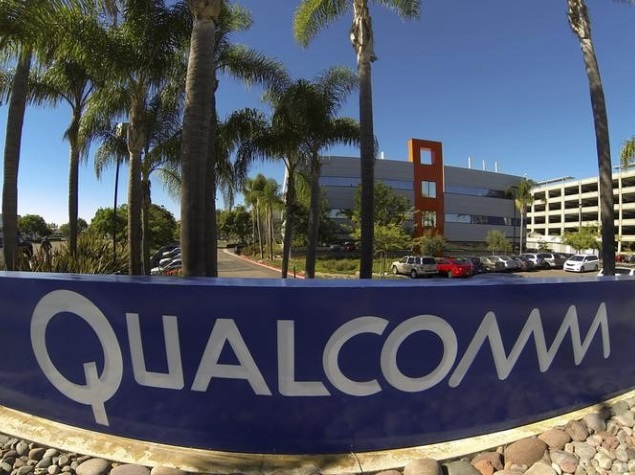- Home
- Telecom
- Telecom Features
- With Antitrust Deal Done, Qualcomm Still Faces China Challenges
With Antitrust Deal Done, Qualcomm Still Faces China Challenges

As low-cost, low-margin Chinese smartphone manufacturers such as Xiaomi Inc and Huawei Technologies push into other developing markets, they are driving down average handset prices - bad news for San Diego-based Qualcomm, which collects royalties based on the handset's value.
Qualcomm could see its margins slip, eroding its profits, as firms like Xiaomi and Huawei push their budget devices into markets such as India and Latin America.
"You've got all these Chinese companies - like Xiaomi, Huawei and Lenovo - that want to go global and take share from Samsung Electronics, HTC and presumably even Apple, but they're going to do it at much lower price points," said Bernstein analyst Stacy Rasgon.
While sales of high-end devices like Apple's iPhone remain robust - and generate hefty profits for Qualcomm - the average selling prices for smartphones in developing countries will fall to $102 by 2018 from $135 last year, predicts IDC. In the United States, smartphones often sell for more than $600 without a contract.
Cheap Chinese chips
Qualcomm, a long-time leader in wireless chip technology, is also under increasing competition from Taiwan's MediaTek and a handful of small Chinese chipmakers that specialize in making chips for low-priced phones.
Qualcomm has led the industry with LTE technology, giving it a major advantage in the recent roll-out of the advanced technology in China. But Intel, Marvell, MediaTek and HiSilicon, a unit of Huawei, are making inroads.
In the second quarter of last year, Qualcomm's global share of LTE baseband chips dipped to 89 percent from 95 percent a year before, lshihargely due to the success of emerging Chinese competitors, said StrategyAnalytics analyst Sravan Kundojjala.
Last month, Qualcomm cut its annual revenue outlook partly because a major customer - reported to be Samsung - chose not to use Qualcomm's newest processor in its next top-tier phone.
Qualcomm also said it expected increased competition in China in medium and high-end devices, a part of the market it has traditionally dominated. Huawei, which sold about 75 million handsets in 2014, uses its own HiSilicon processor for its flagship Ascend models.
Qualcomm rival Intel is also eyeing a comeback in the mobile market after striking an alliance with the Chinese government, saying in September it would invest up to $1.5 billion (roughly Rs. 9,312 crores) in state-owned chipmaker Spreadtrum to jointly develop processors.
© Thomson Reuters 2015
For the latest tech news and reviews, follow Gadgets 360 on X, Facebook, WhatsApp, Threads and Google News. For the latest videos on gadgets and tech, subscribe to our YouTube channel. If you want to know everything about top influencers, follow our in-house Who'sThat360 on Instagram and YouTube.
Related Stories
- Galaxy S24 Series
- MWC 2024
- Apple Vision Pro
- Oneplus 12
- iPhone 14
- Apple iPhone 15
- OnePlus Nord CE 3 Lite 5G
- iPhone 13
- Xiaomi 14 Pro
- Oppo Find N3
- Tecno Spark Go (2023)
- Realme V30
- Best Phones Under 25000
- Samsung Galaxy S24 Series
- Cryptocurrency
- iQoo 12
- Samsung Galaxy S24 Ultra
- Giottus
- Samsung Galaxy Z Flip 5
- Apple 'Scary Fast'
- Housefull 5
- GoPro Hero 12 Black Review
- Invincible Season 2
- JioGlass
- HD Ready TV
- Laptop Under 50000
- Smartwatch Under 10000
- Latest Mobile Phones
- Compare Phones
- Huawei Pura 70 Pro+
- Huawei Pura 70 Ultra
- Tecno Camon 30 Premier 5G
- Motorola Edge 50 Fusion
- Oppo A1i
- Oppo A1s
- Motorola Edge 50 Ultra
- Leica Leitz Phone 3
- Asus ZenBook Duo 2024 (UX8406)
- Dell Inspiron 14 Plus
- Realme Pad 2 Wi-Fi
- Redmi Pad Pro
- Cult Shock X
- Fire-Boltt Oracle
- Samsung Samsung Neo QLED 8K Smart TV QN800D
- Samsung Neo QLED 4K Smart TV (QN90D)
- Sony PlayStation 5 Slim Digital Edition
- Sony PlayStation 5 Slim
- Voltas 1.5 Ton 5 Star Inverter Split AC (SAC 185V EAZS)
- Blue Star 1.5 Ton 3 Star Inverter Split AC (IA318TNU)

















